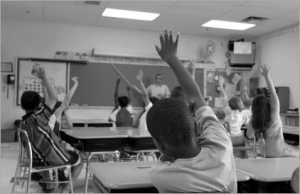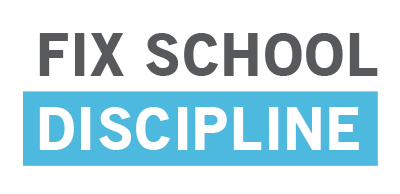New Article: The secret to fixing school discipline problems? Change the behavior of adults.
 There are waves in our schools as restorative justice replaces punitive justice. More than 23,000 schools are letting go of punitive approaches to discipline in favor of restorative models. Schools that adopt these models often see at least a 20% drop in suspension rates during their first year, which impacts graduation rates, test scores and grades.
There are waves in our schools as restorative justice replaces punitive justice. More than 23,000 schools are letting go of punitive approaches to discipline in favor of restorative models. Schools that adopt these models often see at least a 20% drop in suspension rates during their first year, which impacts graduation rates, test scores and grades.
Those waves of change can be seen in how they actually play out during the school day. In one San Diego elementary school, a fight between two boys turns into a handshake and a friend request. Instead of suspending the boys, the Principal sat them both down and had them express how the fight made them feel, apologize to the other and talk through what to do if it happened again. Fifteen minutes later, the boys returned to the principal’s office to say that they were now friends. Altering the behavior of teachers and staff impacts how they relate to the students. The ripple effect of this one interaction informs the numbers above.
The article sites a report that shows 464,050 suspensions in 2006 in California, with 95% of these suspensions for ‘disruptive behavior’. Punishing students doesn’t change behavior, but it does place them in the school to prison pipeline. The article looks at student behavior and how childhood adversity affects a child’s ability to learn.
Think of the ‘learning brain’ as the rider, and the ‘survival brain’ as the horse,” says Joyce Dorado, director of HEARTS and associate clinical professor at the University of California, San Francisco, School of Medicine. “When a student is triggered into survival mode by a trauma reminder, the ‘learning brain’ largely goes offline. The rider’s off the horse, and you’re just dealing with a really terrified horse.” In this state, a child is neurobiologically unable to learn. No amount of working harder will change things. The child’s behavior is a normal response to toxic stress; it is not “willful” or intentionally directed against a teacher. The good news is that the brain is plastic, and if toxic stress stops and is replaced by practices that build resilience, the brain can slowly repair much of the damage.”
Click here to read more from this article from ACES too High News.

